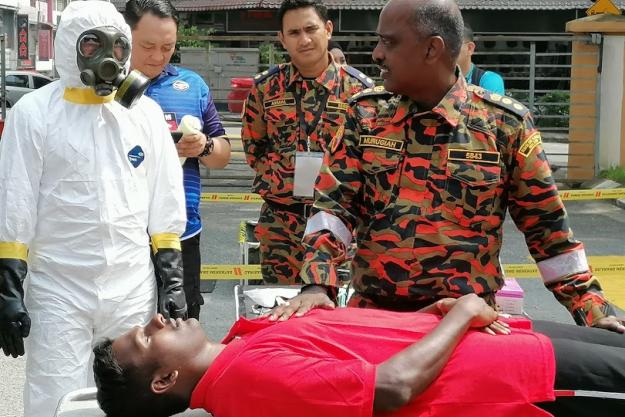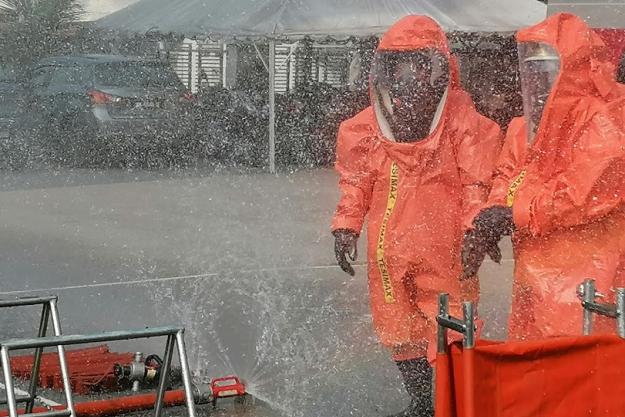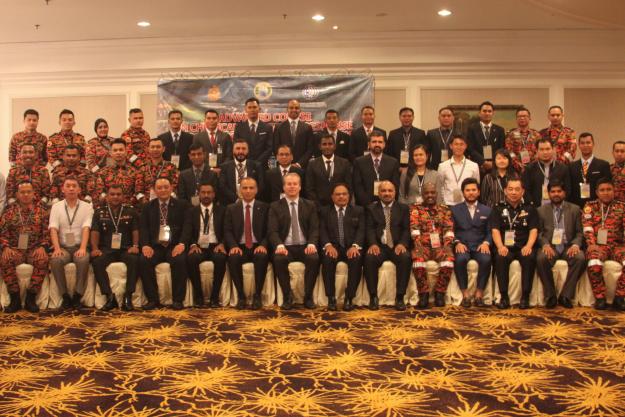
Participants during the sixth Advanced Course on Chemical Emergency Response held in Kuala Lumpur
THE HAGUE, Netherlands – 30 September 2019 – First responders increased their skills in handling emergencies involving chemical weapons and toxic industrial chemicals during the sixth Advanced Course on Chemical Emergency Response held in Kuala Lumpur, Malaysia from 23 to 27 September.
The course provided practical training to participants from Asia on the use of protective equipment, types and characteristics of chemical warfare agents, and detection and decontamination techniques.
In his opening speech, Chairman of the National Authority for Chemical Weapons Convention (CWC) in Malaysia, H.E. Ambassador Dato’ Ilankovan Kolandavelu, emphasised the importance of developing safeguards to protect against, and respond to, toxic chemical incidents at home and abroad.
Senior Program Officer from the Assistance and Protection Branch of the Organisation for the Prohibition of Chemical Weapons (OPCW), Mr Shahriar Khateri, added that “timely and efficient” response to these incidents cannot be underestimated and the skills and knowledge participants acquire in this training are essential to boosting regional capacity.

Participants during the sixth Advanced Course on Chemical Emergency Response held in Kuala Lumpur
This course was the second part of OPCW’s 2019 first responder training cycle for Asian States Parties. The training cycle started with a basic course in the CBRN Defence command in Seoul, Republic of Korea, and will end with a Field Exercise in the Singapore’s Civil Defence training Centre in December this year.
The course was co-organised by the OPCW and the National Authority for CWC of the Government of Malaysia with support from the Fire and Rescue Department of Malaysia, (FRDM) and the Department of Chemistry of the Ministry of Science. It was attended by participants from: Bangladesh, Iraq, Kazakhstan, Republic of Korea, Malaysia, Pakistan, Philippines, and Sri Lanka.

Background
As the implementing body for the Chemical Weapons Convention, the OPCW, with its 193 Member States, oversees the global endeavour to permanently eliminate chemical weapons. Since the Convention’s entry into force in 1997, it is the most successful disarmament treaty eliminating an entire class of weapons of mass destruction.
Ninety-seven percent of all chemical weapon stockpiles declared by possessor States have been destroyed under OPCW verification. For its extensive efforts in eliminating chemical weapons, the OPCW received the 2013 Nobel Peace Prize.
